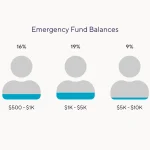
How does intelligence relate to wealth? The correlation between IQ and wealth is relatively low, but it’s not zero. While low IQ does not guarantee a lifetime of poverty, it certainly does not ensure wealth either. For instance, a person with a high IQ could still get a job that’s not too good for them, and the odds of them being found are slim to none. But if you have a high IQ, you’ll enjoy many perks, and you can count on long life and happiness as a result.
Other factors such as education, number of children and years in school could also be responsible for reducing net worth. However, people with slightly higher IQ scores were found to have higher net worths than those with lower IQs. People with an IQ of 110 or higher, on the other hand, had an average net worth of $9600. Smokers’ net worth dropped by $11,000 as a result of smoking, and divorces accounted for nearly half of the difference between those with a higher and lower IQ.
Some studies have shown a correlation between IQ and income, but not always. One study tracked seven thousand people from 1957 to 1964, and found that every IQ point was associated with an extra $202 to $616 a year. This means that high-IQ people have greater income, but they also have less savings than average earners. If you want to learn more about how intelligence affects wealth, read the full article here.
Although IQ tests measure abstract reasoning and memory capacity, they don’t provide a good measure of how well you can make real-world decisions. A higher IQ might help you remember missed payments and save more money in the long run. Further, higher IQs are more likely to be financially savvy, which would be a big plus. You might also want to consider studying this in school. And, as a bonus, the study also included some interesting findings.
The authors of IQ and the Wealth of Nations cite the Qatari IQ as evidence. Despite this, their study has been met with considerable criticism, mainly from academics who question the methodology, incompleteness of the data, and conclusions drawn from the analysis. Their follow-up study, IQ and Global Inequality, based on published reports, analyzed the same data as the first one. The findings show that IQ is correlated with national GDP per capita, as well as with the rate of economic growth between 1950 and 1990.
The correlation between IQ and happiness is generally positive, although some studies have found the relationship to be not statistically significant. Unlike other factors, IQ and happiness are directly related to openness to experience. People with higher IQs seek out experiences and enjoy thoughtfulness. The researchers also found a strong correlation between IQ and wealth. And despite the lack of evidence, the correlation between IQ and wealth is a positive one.


